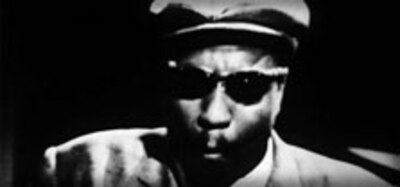Count Basie
Biography
Biography
The first ever male African-American to win a Grammy Award, jazz pianist and bandleader Count Basie helped to define the swing era with his distinctive blend of minimal sparse solos and jumping beats. Mentored by the likes of Fats Waller and Willie 'The Lion' Smith, Basie began his career performing in various groups around the major jazz cities before forming the orchestra that he would go on to lead for over half a century. Responsible for launching the careers of such seminal musicians as Lester Young, Buck Clayton and Freddie Green, Basie also helped to showcase the talents of legendary vocalists Billie Holiday, Jimmy Rushing and Joe Williams, and unlike many of his peers, managed to remain a key musical figure long after the big band sound's decline in popularity.
Born to musician parents in Red Bank, NJ in 1904, William Basie's first instrument of choice was the drums but discouraged by neighbor and future Duke Ellington sticksman Sonny Green's distinguished talents, he opted to focus on the piano skills he'd also developed as a youngster instead. After playing with Green at various dances, resorts and weddings, Basie moved to the hotbed of jazz that was Harlem in 1924 where he landed his first professional gig at uptown celebrity haunt Leroy's. Basie then became a regular on the vaudeville circuit, performing with Katie Krippen and Her Kiddies, accompanying blues singer Gonzelle White and briefly joining Walter Page and his Famous Blue Devils where he gained his nickname Count.
In 1929, Basie joined Bennie Moten's Kansas-based band where he also acted as co-arranger with Eddie Durham and after helping to popularize the swing movement with the Moten Swing, he eventually became their leader. Following a change of name and the recruitment of saxophonist Lester Young, the Count Basie Orchestra moved to Chicago where they honed their rhythmic sound during a long engagement at the Grand Terrace Ballroom and hooked up with producer John Hammond to record four songs under the guise of Jones-Smith Incorporated. In 1937, Basie achieved his first chart entry with future Grammy Hall of Fame inductee "One O'Clock Jump" and built on its success a year later with the Top 10 hit, "Stop Beating Around The Mulberry Bush."
A residency at New York's Roseland Ballroom and a Battle of the Bands victory over Chick Webb's group at the Savoy also helped to boost his profile, as did a national tour which saw a young Billie Holiday join him on stage. Following the United States' entry into the Second World War, Basie's band appeared alongside the Hollywood elite at a Command Performance for Armed Forces Radio and made their cinematic debut in "Reveille With Beverley" (1942), later adding to their filmography with guest spots in the likes of "Choo Choo Swing" (1942) "Crazy House" (1943) and "Top Man" (1943). Despite a series of line-up changes, the Count Basie Orchestra continued to rack up the hits on the pop and R&B charts and even scored a Billboard number one with "Open The Door, Richard."
Following the end of the big band era, Basie briefly disbanded the group but kept his name in the spotlight by performing in various combos and headlining the Universal-International short film, ""Sugar Chile" Robinson, Billie Holiday, Count Basie and His Sextet" (1950). In 1952, he reformed The Count Basie Orchestra and embarked on his first ever international tour before becoming a commercial force once more with 1955's Count Basie Swings - Joe Williams Sings. The group continued to prosper throughout the decade, adding to their tally of Top 10 hits with an instrumental reading of "April in Paris" and winning two awards at the first-ever Grammys in 1959, Best Jazz Performance and Best Performance by a Dance Band for Basie.
After the critically-acclaimed but commercially-disappointing double whammy of 1961's Basie at Birdland and 1962's The Legend, Basie then became a chart fixture again when he signed to Frank Sinatra's Reprise Records and released a series of collaborative albums with the likes of Ella Fitzgerald (Ella and Basie), Sammy Davis Jr. (Our Shining Hour) and Ol' Blue Eyes himself (It Might As Well Be Swing). Basie then made equally successful forays into the world of showtunes (Broadway. Basie's Way), instrumental jazz (Standing Ovation) and avant-garde experimentalism (Afrique) before establishing a regular presence on the jazz festival and cruise ship circuit.
After appearing as himself in a memorable cameo in Mel Brooks' Western satire "Blazing Saddles" (1974), Basie was forced to cut down his touring duties to various health problems. But he remained a prolific recording act, receiving a plethora of Grammy awards and nominations for the likes of Dizzy Gillespie collaboration The Gifted Ones, On The Road and Basie Street. But in 1984, just twelve months after his wife of 40+ years, Catherine, died of a heart attack, Basie passed away from pancreatic cancer aged 79, leaving behind a remarkable body of work arguably unmatched by any other bandleader.
Filmography
Cast (Feature Film)
Music (Feature Film)
Cast (Special)
Music (Special)
Life Events













